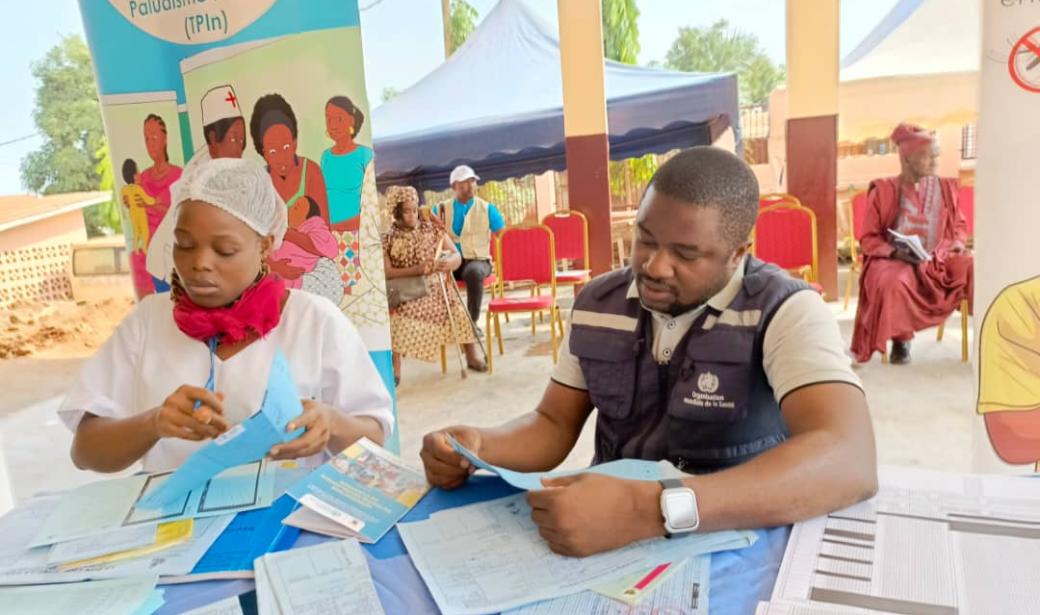Yaoundé – On 22 January 2024, Cameroon introduced the RTS,S malaria vaccine into its Expanded Programme on Immunisation (EPI). It thus becomes the first country to include the malaria vaccine in its routine immunisation schedule, following the malaria vaccination pilot programme conducted between 2019 and 2023 in Ghana, Kenya and Malawi.
Following Cameroon’s lead, seven additional countries in the African region – Burkina Faso, Benin, Sierra Leone, Liberia, Côte d'Ivoire, South Sudan, and Mozambique – have introduced malaria vaccines to protect children against the disease. Malaria remains the leading cause of consultations, hospitalizations, and deaths in health facilities in these countries. This introduction is a major step forward in the fight against malaria and comes at a time when efforts are being stepped up to intensify vaccination against the disease in high-risk areas in Africa.
In Cameroon, the malaria vaccine was eagerly awaited, as the country is one of the worst affected by this disease, which is one of the deadliest in the African region. To begin with, 42 high-risk health districts in the 10 regions were selected for the introduction of the vaccine.
The malaria vaccine has been eagerly waited for decades in Africa, where 94% of malaria cases and 95% of malaria deaths will be recorded by 2022.
"Malaria claims too many victims. Last time my son was sick and anaemic because of malaria. I was really scared," says Blandine.
"When I heard that children were to be vaccinated against malaria, I didn't hesitate for a moment. If my other children were eligible, I was going to have them vaccinated too.
"This is a new vaccine and we need to keep parents well informed. For the past three months, we've been raising awareness of the importance of protecting children against malaria, which is well known in our area", explains Danièle Ekoto, Senior Nurse at Soa District Hospital.
" Women were really looking forward to this vaccine. And so were we. "
"With this vaccine, we are convinced that hospitalisation and mortality rates will really drop. Our people suffer too much from malaria", said Dr Paul Onambele, Soa District Health Chief. He added that the vaccine complements existing preventive measures, in particular impregnated mosquito nets and environmental sanitation.
"It is unacceptable that a child should fall victim to a disease that can be prevented by a safe and effective vaccine", said Dr Mohamed 2 Kaba, Focal Point for Malaria Vaccine Introduction at the WHO Representation in Cameroon.
"This vaccine is an opportunity that we must seize to protect our children from malaria."
To be effective, vaccines need to be stored at appropriate temperatures.
Efforts were being made to maintain the cold chain so that children who receive the vaccine can reap the expected benefits.
To be protected and have a fulfilling life with less malaria illness, Maëlle needs three extra doses to complete the series of four doses given at six months, seven months, nine months and two years old.
Communications Officer
Regional Office for Africa
Email: lawsonagbluluf [at] who.int (lawsonagbluluf[at]who[dot]int)
Communications and marketing officer
Tel: + 242 06 520 65 65 (WhatsApp)
Email: boakyeagyemangc [at] who.int (boakyeagyemangc[at]who[dot]int)



